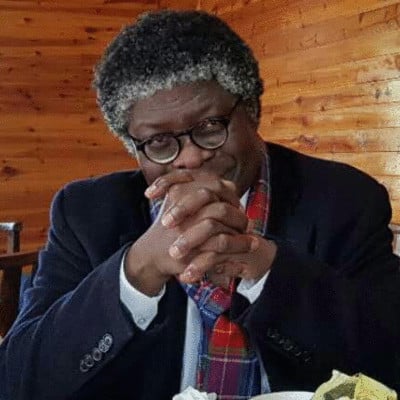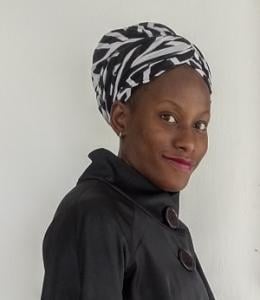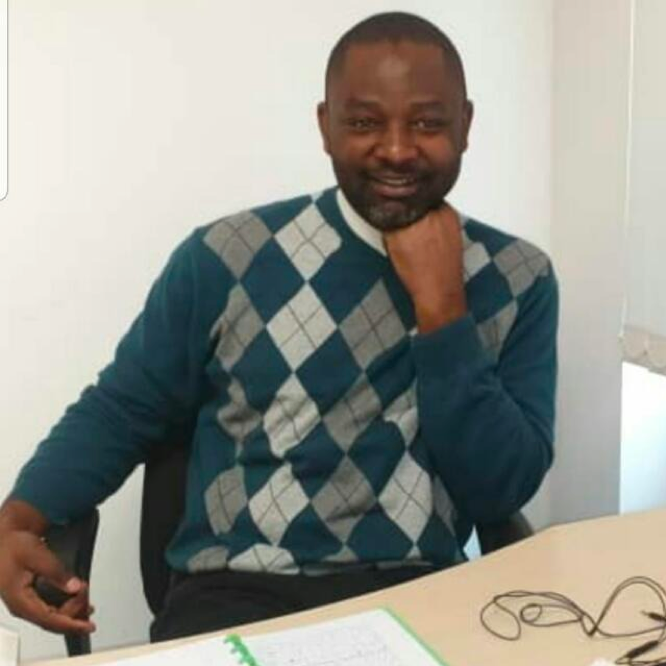June 06 Day

8:00 GMT - Symposium begins
Central Africa (Yaoundé): 9:00 am, East Africa (Nairobi): 11:00 am, Paris: 10:00 am, Washington DC: 4:00 am, China (Beijing): 4:00 pm
Welcome address
Dr. Ambroise DJERE (Cheikh Anta Diop University)
Introduction to the day's work
Abdel MOUNCHAROU (Howard University)

8:15 GMT - Presentations begin
Central Africa (Yaoundé): 9h15, East Africa (Nairobi): 11h15, Paris: 10h15, Washington DC: 4h15, China (Beijing): 16h15
Axis
Harmony between Man and Nature: Sustainable Practices for an African Future
Moderators
Diane TAPIMALI (University of Dschang)
Leslie MOULONGUI (University of Lomé)
Moderators chat
Docteur Ambroise DJERE (Cheikh Anta Diop University)
Abdel MOUNCHAROU (Howard University)

2:00 pm - 4:00 pm GMT - Round table discussions
Central Africa (Yaoundé): 15:00 - 17:00, East Africa (Nairobi): 17:00 - 19:00, Paris: 16:00 - 18:00,
Washington DC: 10:00 - 12:00, China (Beijing): 22:00 - 00:00
Presentation themes
Geostrategic issues linked to African natural resources: Assets and vulnerabilities, Ousseynou GUEYE, PhD student at Cheikh Anta Diop University, Dakar, Senegal
Rethinking agriculture to meet the challenges of climate change - Jordan ESSOMBE EWANE, agricultural engineer, specialist in crop production, Cameroon
Diversity and Indigenous Knowledge of the Stingless Bees (Apidae Meliponini) of Togo - Koffi Valentin MAWOUGNIGAN, Animal Husbandry Engineer, Founder of the Association des Professionnels en Gestion et Conservation de la Biodiversité (APro-GCB), Togo
Sustainability of the bushmeat trade in southern Benin: the Lama case - Joël DJAGOUN, researcher specializing in the development and management of protected areas, wildlife and rangelands at the Faculty of Agronomic Sciences, University of Abomey-Calavi.
Stabilization of soya cheese (Amonsoja) through improved processing technology in Benin - Makosso Ulrich ALLAVO, Master's degree in Food Science and Technology from the University of Liège and a professional Master's degree in Social and Solidarity Economy Entrepreneurship (Université Lumière Lyon 2)
Intervenants

Babacar FALL is Director of the Centre de recherche sur les métiers et la mémoire en Afrique, affiliated with the doctoral school "Etude sur l'Homme et la Société (ETHOS)" atCheikh Anta Diop University in Dakar, Senegal. He has held a number of administrative posts, including Head of the History and Geography Department of the Faculty of Science and Technology of Education and Training (FASTEF) at Dakar University. Since 1984, he has held a post-graduate doctorate in history from the University of Dakar. In 2008, he was awarded anhonorary doctorate from the University of Le Havre, and in 2010 he received his doctorate in history (Ph.D) from the University of Amsterdam. A specialist in labor history in French-speaking West Africa, his research focuses on migration, pedagogical innovations and educational reforms. Alongside his academic activities, he is a founding member and coordinator of the Groupe pour l'Etude et l'Enseignement de la Population (GEEP). This is a professional action-research association accredited as a non-governmental organization (NGO), working in the fields of health education and youth leadership development. He has also been a visiting scholar with the Fulbright Program, the University of Oregon's Savage Award, the Stanford Humanities Center and theInternational Research Center Re:Work at Humbolt University in Berlin.
Augustin Holl

Augustin Ferdinand Charles Holl, born in 1954 shortly before his country's independence, has always had an independent spirit and a thirst for knowledge that have driven him to explore beyond the borders of his native land. From an early age, he nurtured the desire to pursue his studies outside his country, refusing to conform to the local tendency to stay and study locally. Although he could have risen to the challenge, he felt that it did not correspond to his intellectual aspirations.
Recognized for his outstanding contributions to palaeontology, Augustin was asked by prestigious institutions such as UNESCO to chair scientific committees and participate in international research projects. His reputation has spread beyond academic boundaries, and he has been invited to lecture in many countries, including China, Senegal and the USA.
Among his highlights was a lecture at the Museums of Black Civilization in New York in 2019, where he shared his expertise on the birth of the African diaspora. Throughout his career, Augustin Ferdinand Charles Holl has embodied academic excellence, intellectual curiosity and a desire to share his knowledge with the world.
Hannah Muzee

Hannah Muzee holds a PhD in Governance and Regional Integration from the Pan African University, Institute of Governance, Humanities and Social Sciences, University of Yaoundé II Soa Cameroon. She is a Lecturer at Kyambogo University and an Associate Consultant for Uganda Management Institute. Hannah also holds a Master's degree in Human Resource Management from Makerere University, Kampala Uganda and a Bachelor's Degree in Administrative Science from Kyambogo University, Kampala, Uganda, She has received certificates from short courses such as UNCTAD online course on Trade and Gender, and is an author of a number of refereed journal articles and book chapters.Her research interests lie in Gender, Deliberation, Feminism, Human Resource Management, Social media, Governance and Politics.
Vivien Meli Meli

MELI MELI Vivien, sociologist, Professor at the University of Dschang and research and development consultant for local, national and international organizations. His scientific interests are mainly related to the dynamics and social mobilization of vulnerable social categories, in particular young people, women and "indigenous peoples". The issues he tackles help to identify the potential of the above-mentioned social categories to make a lasting contribution to historical social action. He is also General Secretary of the Unité de Recherche Philosophie et Sciences Sociales Appliquées (URPHISSA) and a member of the Association Internationale des Sociologues de Langue Française (AISLF).
Daily workshops

8:00 - 10:00 GMT - Leveraging Strategic Collaborations, Institutional Partnerships, and Innovation in Higher Education for Sustainable Development in Africa
Central Africa (Yaoundé): 9:00 AM - 11:00 AM, East Africa (Nairobi): 11:00 AM - 1:00 PM, Paris: 9:00 AM - 11:00 AM, Washington DC: 3:00 AM - 5:00 AM, China (Beijing): 4:00 PM - 6:00 PM

6:00 pm - 8:00 pm GMT - Data collection and management
Central Africa (Yaoundé): 19h-21h, East Africa (Nairobi): 21h-23h, Paris: 20h-22h, Washington DC: 14h-16h, China (Beijing): 02h-04h

6:00 pm - 8:00 pm GMT - Writing and publishing in research: choosing scientific blogs
Central Africa (Yaoundé): 19h-21h, East Africa (Nairobi): 21h-23h, Paris: 20h-22h, Washington DC: 14h-16h, China (Beijing): 02h-04h

6:00 pm - 8:00 pm GMT - Designing and writing your research project
Central Africa (Yaoundé): 19h-21h, East Africa (Nairobi): 21h-23h, Paris: 20h-22h, Washington DC: 14h-16h, China (Beijing): 02h-04h




